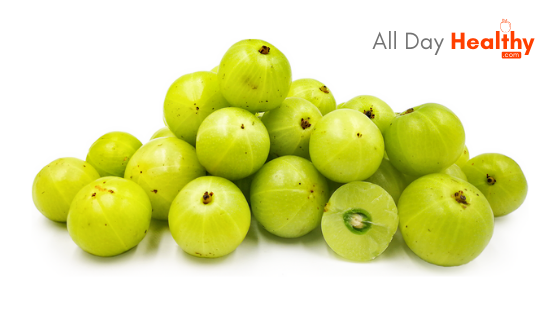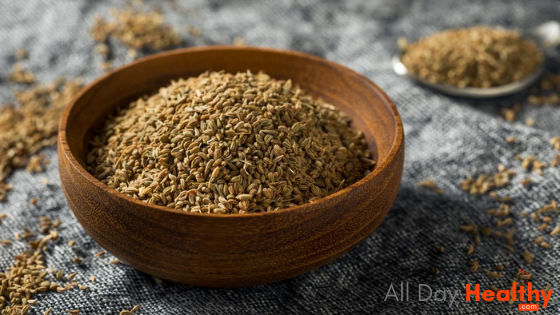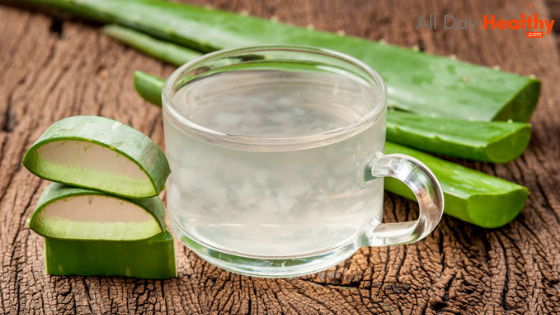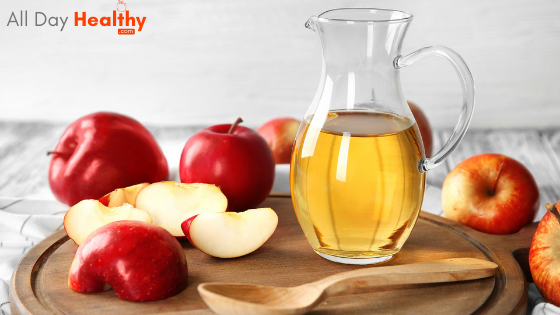Spirulina is a blue-green microalgae that typically grows in freshwater lakes, natural springs, and saltwater in subtropical and tropical climates. Like tons of hot superfoods (think: matcha), spirulina isn’t new. In fact, research suggests the ingredient has been consumed in places like central Africa for centuries.

16 Emerging Health Benefits of Spirulina, Side Effects, Uses
According to Brown, the microalgae is typically dried and pulverized. After that, it can be combined with other superfood ingredients (think: wheatgrass, maca) or kept on its own and made into a powder that is then added to beverages or baked into solid foods. Another option is to consume spirulina as a supplement in capsule form.
1. May Aid Blood Sugar Control or Diabetes
Animal studies link spirulina to significantly lower blood sugar levels.
In some cases, it has outperformed popular diabetes drugs, including Metformin
There is also some evidence that spirulina can be effective in humans.
In a two-month study in 25 people with type 2 diabetes, 2 grams of spirulina per day led to an impressive reduction in blood sugar levels
HbA1c, a marker for long-term blood sugar levels, decreased from 9% to 8%, which is substantial. Studies estimate that a 1% reduction in this marker can lower the risk of diabetes-related death by 21%
However, this study was small and short in duration. More studies are necessary.
Some evidence suggests that spirulina may benefit people with type 2 diabetes, significantly reducing fasting blood sugar levels.
2. May Improve Muscle Strength and Endurance
Exercise-induced oxidative damage is a major contributor to muscle fatigue.
Certain plant foods have antioxidant properties that can help athletes and physically active individuals minimize this damage.
Spirulina appears beneficial, as some studies pointed to improved muscle strength and endurance.
In two studies, spirulina enhanced endurance, significantly increasing the time it took for people to become fatigued. Spirulina may provide multiple exercise benefits, including enhanced endurance and increased muscle strength.
3. May Be Effective Against Anemia
There are many different forms of anemia.
The most common one is characterized by a reduction in hemoglobin or red blood cells in your blood.
Anemia is fairly common in older adults, leading to prolonged feelings of weakness and fatigue
In a study in 40 older people with a history of anemia, spirulina supplements increased the hemoglobin content of red blood cells and improved immune function.
Keep in mind that this is just one study. More research is needed before any recommendations can be made.
One study suggests that spirulina can reduce anemia in older adults, though more research is needed.
4. Improves Symptoms of Allergic Rhinitis
Allergic rhinitis is characterized by inflammation in your nasal passageways.
It is triggered by environmental allergens, such as pollen, animal hair or even wheat dust.
Spirulina is a popular alternative treatment for symptoms of allergic rhinitis, and there is evidence that it can be effective.
In one study in 127 people with allergic rhinitis, 2 grams per day dramatically reduced symptoms like nasal discharge, sneezing, nasal congestion and itching.
Spirulina supplements are very effective against allergic rhinitis, reducing various symptoms.
When a person has allergies to pollen, dust, or pets, the inside of their nose may swell. This reaction is called allergic rhinitis. There is some evidence that spirulina could help improve the symptoms of this condition.
A 2013 study states that spirulina can relieve nasal inflammation and reduce histamine in the body. Compared to a placebo, it may reduce the symptoms of allergic rhinitis, including:
- runny nose
- sneezing
- nasal congestion
- itching
A 2011 review notes that there is a reasonable amount of evidence for the positive effects of spirulina on allergic rhinitis, but that larger trials are needed before researchers know the true impact.
5. May Reduce Blood Pressure
High blood pressure is a main driver of many serious diseases, including heart attacks, strokes and chronic kidney disease.
While 1 gram of spirulina is ineffective, a dose of 4.5 grams per day has been shown to reduce blood pressure in individuals with normal levels
This reduction is thought to be driven by an increased production of nitric oxide, a signaling molecule that helps your blood vessels relax and dilate.
A higher dose of spirulina may lead to lower blood pressure levels, a major risk factor for many diseases.
As discussed above, spirulina may lower cholesterol, and there is also evidence that it could help control a person's blood pressure.
A small-scale 2016 study found that eating spirulina regularly for 3 months reduced people's blood pressure when they were overweight and had hypertension.
6. May Have Anti-Cancer Properties
Some evidence suggests that spirulina has anti-cancer properties.
Research in animals indicates that it can reduce cancer occurrence and tumor size.
Spirulina’s effects on oral cancer — or cancer of the mouth — have been particularly well studied.
One study examined 87 people from India with precancerous lesions — called oral submucous fibrosis (OSMF) — in the mouth.
Among those who took 1 gram of spirulina per day for one year, 45% saw their lesions disappear — compared to only 7% in the control group.
When these people stopped taking spirulina, almost half of them redeveloped lesions in the following year.
In another study of 40 individuals with OSMF lesions, 1 gram of spirulina per day led to greater improvement in OSMF symptoms than the drug Pentoxyfilline.
Spirulina may have anti-cancer properties and appears especially effective against a type of precancerous lesion of the mouth called OSMF.
7. Protects “Bad” LDL Cholesterol From Oxidation
Fatty structures in your body are susceptible to oxidative damage.
This is known as lipid peroxidation, a key driver of many serious diseases.
For example, one of the key steps in the development of heart disease is the oxidation of “bad” LDL cholesterol.
Interestingly, the antioxidants in spirulina appear to be particularly effective at reducing lipid peroxidation in both humans and animals.
In a study in 37 people with type 2 diabetes, 8 grams of spirulina per day significantly reduced markers of oxidative damage. It also increased levels of antioxidant enzymes in the blood. Fatty structures in your body can become oxidized, driving the progression of many diseases. The antioxidants in spirulina can help prevent this.
8. Can Lower “Bad” LDL and Triglyceride Levels
Heart disease is the world's leading cause of death.
Many risk factors are linked to an increased risk of heart disease.
As it turns out, spirulina positively impacts many of these factors. For example, it can lower total cholesterol, “bad” LDL cholesterol and triglycerides, while raising “good” HDL cholesterol.
In a study in 25 people with type 2 diabetes, 2 grams of spirulina per day significantly improved these markers
Another study in people with high cholesterol determined that 1 gram of spirulina per day lowered triglycerides by 16.3% and “bad” LDL by 10.1%
Several other studies have found favorable effects — though with higher doses of 4.5–8 grams per day. Studies indicate that spirulina can lower triglycerides and “bad” LDL cholesterol and may simultaneously raise “good” HDL cholesterol.
9. Powerful Antioxidant and Anti-Inflammatory Properties
Oxidative damage can harm your DNA and cells.
This damage can drive chronic inflammation, which contributes to cancer and other diseases.
Spirulina is a fantastic source of antioxidants, which can protect against oxidative damage.
Its main active component is called phycocyanin. This antioxidant substance also gives spirulina its unique blue-green color.
Phycocyanin can fight free radicals and inhibit production of inflammatory signaling molecules, providing impressive antioxidant and anti-inflammatory effects.
Phycocyanin is the main active compound in spirulina. It has powerful antioxidant and anti-inflammatory properties.
10. Spirulina Is Extremely High in Many Nutrients
Spirulina is an organism that grows in both fresh and salt water.
It is a type of cyanobacteria, which is a family of single-celled microbes that are often referred to as blue-green algae.
Just like plants, cyanobacteria can produce energy from sunlight via a process called photosynthesis.
Spirulina was consumed by the ancient Aztecs but became popular again when NASA proposed that it could be grown in space for use by astronauts
A standard daily dose of spirulina is 1–3 grams, but doses of up to 1 grams per day have been used effectively.
This tiny alga is packed with nutrients. A single tablespoon (7 grams) of dried spirulina powder contains:
- Protein: 4 grams
- Vitamin B1 (thiamine): 11% of the RDA
- Vitamin B2 (riboflavin): 15% of the RDA
- Vitamin B3 (niacin): 4% of the RDA
- Copper: 21% of the RDA
- Iron: 11% of the RDA
- It also contains decent amounts of magnesium, potassium and manganese and small amounts of almost every other nutrient that you need.
In addition, the same amount holds only 20 calories and 1.7 grams of digestible carbs.
Gram for gram, spirulina may be the single most nutritious food on the planet.
A tablespoon (7 grams) of spirulina provides a small amount of fat — around 1 gram — including both omega-6 and omega-3 fatty acids in an approximately 1.5–1.0 ratio.
The quality of the protein in spirulina is considered excellent — comparable to eggs. It gives all the essential amino acids that you need.
It is often claimed that spirulina contains vitamin B12, but this is false. It has pseudovitamin B12, which has not been shown to be effective in humans.
Spirulina is a type of blue-green algae that grows in both salt and fresh water. It may be one of the most nutrient-dense foods on earth.
11. Improves the Gut Health
Spirulina can be digested easily because of its structure where the cells do not have tough, fibrous walls. But can consuming it improve gut health?
More research on humans is needed, but animal studies indicate spirulina may support gut health as people age. A 2017 study on older mice suggests that spirulina may preserve healthy gut bacteria during the aging process.
Spirulina does not contain much fiber, so it is essential to include other gut-healthful, high-fiber foods in the diet.
12. Strengthens Mental Weakness & Support Mental Health
A 2018 paper highlights the potential role that spirulina could play in treating mood disorders.
The theory is that spirulina is a source of tryptophan. Tryptophan is an amino acid that supports serotonin production. Serotonin plays an important role in mental health.
People with certain mental health conditions, such as depression and anxiety, may have reduced levels of serotonin. Taking tryptophan supplements to maintain healthful serotonin levels may play a role in supporting mental wellbeing.
Researchers need to conduct more clinical trials before they know the true role of spirulina in supporting mental health.
13. Acts as an Immunity Enhancer
You know how filling your room with houseplants can help you breath better? Plants aren’t the only green that have that effect—this vibrantly hued algae can as well. Spirulina contains a compound called phycocyanin, an antioxidant that fights off anything that could cause damage to your cells. If you feel a cold coming on—or everyone around you seems to be sick—it can’t hurt to work some extra spirulina into your diet to give your immune cells that added layer of protection.
14. Increases Endurance For The Atheletes
Are spirulina protein bars the next big thing? Maybe they should be. Studies show that taking it on a regular basis can up athletes’ endurance. Why? You better believe better blood flow is part of it. Think how hard your heart has to work when you’re trying to climb that Peloton leaderboard. Any boost in the blood flow department is going to help endurance when you need it the most
15. Excellent Anti-Toxic Action
In certain parts of the world, people are at risk of poisoning from contaminated drinking water and other sources of pollutants. Early research suggests that spirulina may offer a way to treat those affected.
A later 2016 review found that spirulina had antitoxic properties that could counteract pollutants in the body, including:
- arsenic
- fluoride
- iron
- lead
- mercury
The authors of the review suggest that spirulina could be a useful substance to use alongside clinical treatment of pollutant poisoning.
16. Prevents Reoccuring Yeast Infection
We’re going there. It turns out the little green giant can help balance vaginal bacteria. Just like how spirulina is a magnet for toxins like heavy metals, it also attracts candida cells and can flush them out of the body. And it isn’t just bringing balance down below; the same course of action can happen in your gut, too, to help bring balance there as well.
How To Find Whether Spirulina is Safe or Not?
To make sure the smoothie booster is clean and pure, our expert advises sticking with companies that are organic, non-GMO, and gluten-free—which will limit cross-contamination a lot.
He also says to check out brands’ websites to see if they call out where their spirulina is sourced from and whether any testing has been done to verify that it’s clean. If they’re not touting that information, be wary. Because spirulina is so trendy right now, some people are using it to get rich quick, buying the cheapest spirulina possible (even if it’s from a shady supplier) and selling it at a premium price. Not everyone tests for toxicity—and those are the suppliers you need to be wary of.
How To Include Spirulina In The Diet
Spirulina is available in powder or tablet form.
As a powder, people can:
- add it to smoothies, which gives the drink a green color
- sprinkle spirulina powder on salads or in soups
- mix it into energy balls, along with other healthful ingredients
- stir a tablespoon into fruit or vegetable juices
People can also take spirulina as a dietary supplement in tablet form.
People can buy dried spirulina from health food stores or online stores. Spirulina tablets are also available in health food stores, drug stores, and online.
Are There any Side Effects of Spirulina?
Doctors consider Spirulina to be safe in general, especially in light of its long history as a food. But Spirulina may become contaminated with toxic metals, harmful bacteria and microcystins — toxins produced from some algae —if it is grown in unsafe conditions. Contaminated Spirulina can cause liver damage, nausea, vomiting, thirst, weakness, rapid heartbeat, shock and even death. Contaminated Spirulina may be especially dangerous for children. The NIH recommends researching the source of Spirulina in supplements to ensure they are grown in safe conditions and tested for toxins.
People with certain autoimmune conditions should avoid Spirulina supplements, according to the NIH. Since Spirulina enhances the immune system, Spirulina supplements may worsen symptoms of multiple sclerosis (MS), lupus (systemic lupus erythematosus, SLE), rheumatoid arthritis and other conditions linked to overactive immune systems. For the same reason, Spirulina may weaken the effect of immunosuppressants, which are often prescribed to treat autoimmune conditions and prevent the body from rejecting organ transplants. Spirulina may also interfere with drugs that slow blood clotting, including blood thinners such as warfarin as well as nonsteroidal anti-inflammatory (NSAIDS) pain medications. Combining Spirulina with herbal supplements that slow blood clotting may increase a person's risk of bleeding. Such herbs include cloves, danshen, garlic, ginger, ginkgo, ginseng and turmeric, according to the NIH.
Women who are pregnant or breast-feeding should avoid Spirulina since there is a lack of safety studies in this group. People who have the genetic condition phenylketonuria should also avoid Spirulina, as it may aggravate their condition, according to the NIH. Since there are not enough studies to establish a safe dose range of Spirulina, it is best to consult a doctor and follow instructions on all supplements to avoid unsafe doses.
Summary
Initial research suggests taking spirulina may improve the following:
- weight loss
- gut health
- diabetes management
- blood pressure
- cholesterol
- risk of heart disease
- metabolic rate
- allergy symptoms
- mental health
Alongside zinc, spirulina shows promise as a treatment for chronic arsenic poisoning.
More research is needed before doctors can recommend spirulina for the treatment of any health condition.






